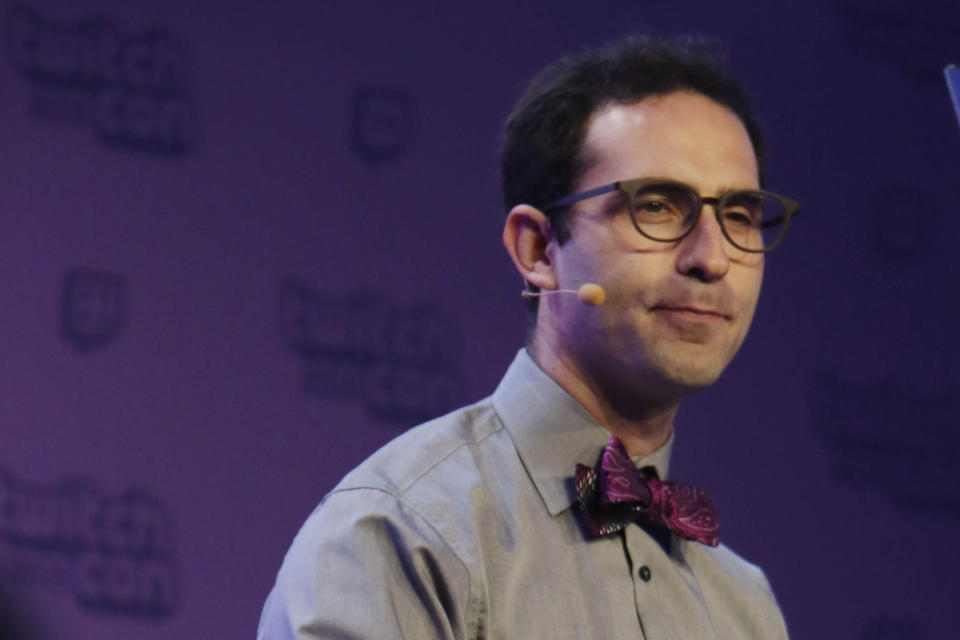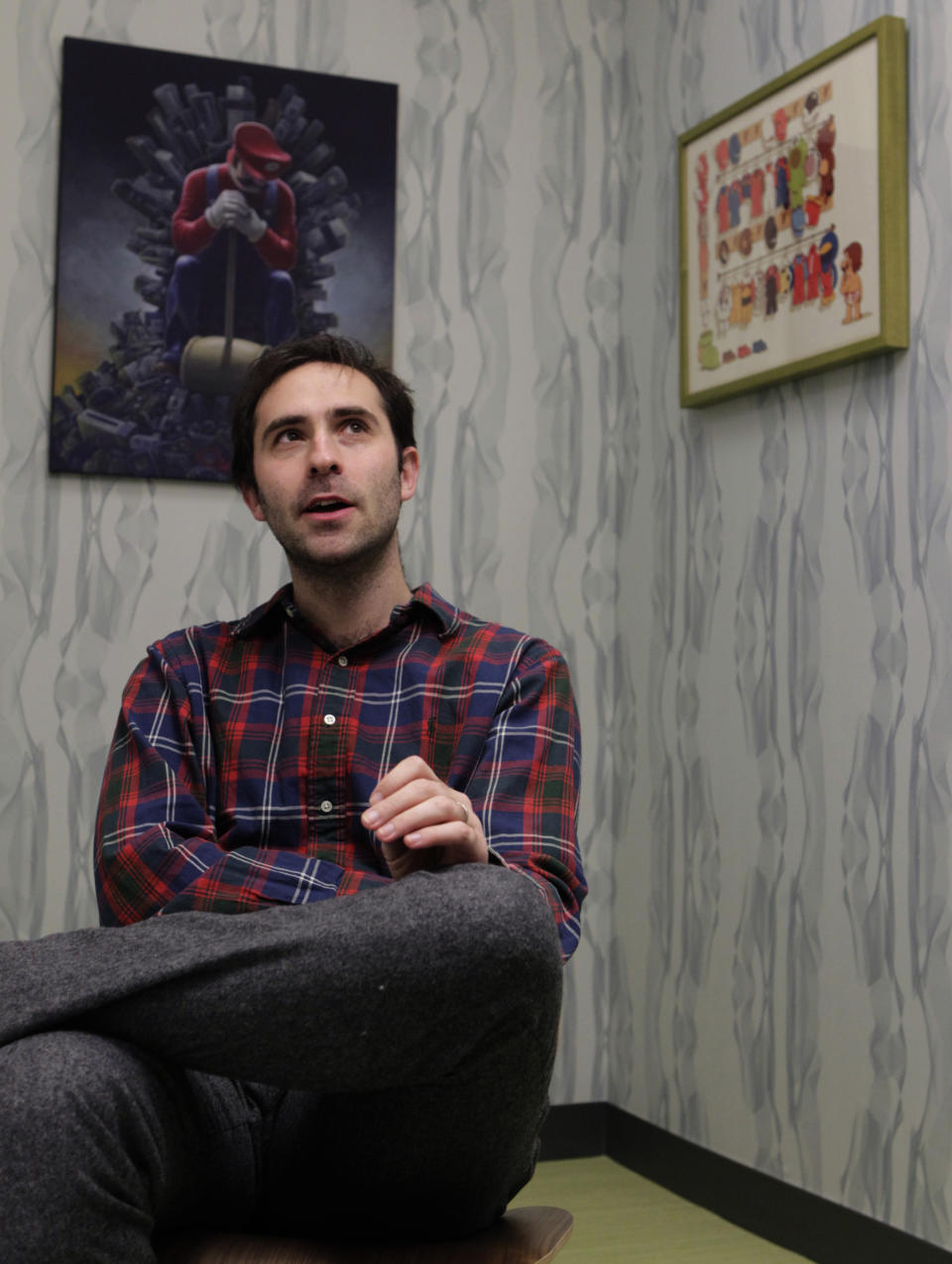What you need to know about Emmett Shear, OpenAI's new interim CEO
OpenAI is bringing in the former head of Twitch as interim CEO just days after the company pushed out its well-known leader Sam Altman, sparking upheaval in the world of artificial intelligence.
Emmett Shear announced his new role Monday morning in a post on X, formerly known as Twitter, while also acknowledging “the process and communications” around Altman’s firing Friday were “handled very badly” and damaged trust in the company.
When it abruptly fired Altman, OpenAI said an internal review found the 38-year-old was “not consistently candid in his communications” with the company's board of directors. OpenAI did not provide more details, leaving industry analysts and tech watchers reading tea leaves in an effort to figure out what happened.
Meanwhile, Microsoft, which has invested billions in the AI company, said Monday it's bringing in Altman and former OpenAI President Greg Brockman — who quit in protest following Altman’s ouster — to lead the tech giant’s new advanced AI research team.
At OpenAI, Shear has promised to shed some light into Altman’s departure. In his X post, he pledged to hire an independent investigator to look into what led up to Altman’s ouster and write a report within 30 days.
WHAT IS SHEAR’S BACKGROUND?
Shear, 40, is the co-founder of the Amazon-owned streaming platform Twitch, a social media site that’s mostly known for gaming.
Twitch was originally part of the streaming video site Justin.tv, which was founded by Shear and three other tech entrepreneurs in 2006. The focus shifted toward gaming in 2011, a move that turned the platform into a growing phenomenon and birthed a plethora of well-known streamers. Three years later, Amazon purchased the company for about $970 million in cash.
Twitch doesn’t garner as much media attention as other social media companies, but it’s been the subject of scrutiny during two instances in the past few years when mass shootings in Buffalo, New York, and Germany were livestreamed on its platform.
Shear left the company in March. He said that was due to the birth of his now 9-month-old son.
After leaving Twitch, Shear became a visiting partner at Y Combinator, a startup incubator that launched Airbnb, DoorDash and Dropbox. Both Altman and Shear know each other as alumni from the first class of startup founders at Y Combinator. Altman later served as Y Combinator's president.
In his LinkedIn profile, Shear says he’s been “starting, growing, and running companies since college” and doesn’t “plan to turn back any time soon.” He graduated from Yale University in 2005 with a bachelor’s degree in computer science.
HOW DID HE END UP AT OPENAI?
OpenAI had initially named its chief technology officer, Mira Murati, as interim CEO on Friday. But she appeared to be one of the signatories on a letter that began circulating early Monday — and signed by hundreds of other OpenAI employees — calling for the board’s resignation and Altman’s return.
The Associated Press was not able to independently confirm that all of the signatures were from OpenAI employees. A spokesperson at OpenAI confirmed that the board has received the letter, which also said the board had replaced Murati, against the best interest of the company.
In his post on X, Shear wrote he received a call offering him a “once-in-a-lifetime opportunity” to become interim CEO at San Francisco-based OpenAI. He said the company’s board “shared the situation” with him and asked him to the role. He quickly agreed.
“I took this job because I believe that OpenAI is one of the most important companies currently in existence,” he wrote.
Shear said he spent most of Sunday “drinking from the firehose as much as possible,” speaking to the board, employees and a small number of OpenAI’s partners.
Investors, for their part, are trying to stabilize the situation. Microsoft CEO Satya Nadella weighed in a post on X early Monday morning, saying he was “extremely excited” to bring on Altman and Brockman and looking “forward to getting to know” the new management team at OpenAI.
Shear was an intern at Microsoft at some point, though from a post he made on X back in July, it doesn't seem like he enjoyed his time at the company. In response to an X users' post that said "the worst kind of demon would be one that pays you just a tiny bit each time you destroy a little bit of yourself", Shear replied: “When I was interning for Microsoft every paycheck felt like I was getting the payment for a little chunk of my soul in the mail.”
WHAT IS SHEAR SAYING ABOUT THE ALTMAN’S DEPARTURE?
In his post on X, Shear said he checked the reasoning behind the changes at OpenAI before he took the job.
“The board did (asterisk)not(asterisk) remove Sam over any specific disagreement on safety, their reasoning was completely different from that,” he wrote.
“I’m not crazy enough to take this job without board support for commercializing our awesome models,” he said, referring to the company’s popular AI tools like ChatGPT and the image generator DALL-E.
“I have nothing but respect for what Sam and the entire OpenAI team have built,” he said. “It’s not just an incredible research project and software product, but an incredible company. I’m here because I know that, and I want to do everything in my power to protect it and grow it further.”
WHAT IS SHEAR TRYING TO DO?
Shear said he wants to accomplish three things within the next 30 days.
In addition to hiring an independent investigator who will “generate a full report” about what happened, Shear said he wants to continue talking to stakeholders and reform the company’s management and leadership teams in light of recent departures.
After that, he said he “will drive changes in the organization — up to and including pushing strongly for significant governance changes if necessary.”
″OpenAI’s stability and success are too important to allow turmoil to disrupt them like this,” he said.
WHAT IS SHEAR’S APPROACH TO AI?
On a podcast in June, Shear said he’s generally optimistic about technology but has serious concerns about the path of artificial intelligence toward building something “a lot smarter than us” that sets itself on a goal that endangers humans. As an engineer, he said his approach would be to build AI systems at a small and gradual scale.
“If there is a world where we survive ... where we build an AI that’s smarter than humans and survive it, it’s going to be because we built smaller AIs than that, and we actually had as many smart people as we can working on that, and taking the problem seriously,” Shear said in June.
Asked by an X user on Monday what his stance was on AI safety, Shear replied: “It’s important.”
__
AP reporter Matt O'Brien in Providence, Rhode Island, contributed to this report.

 Yahoo News
Yahoo News 

